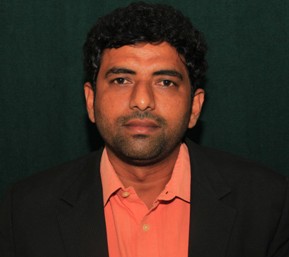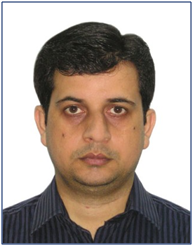| Faculty (Department Wise)+ |
|---|
| ----------------------------- |
| Chemical Sciences > |
| Pharmaceutical Analysis > |
| Biological Sciences > |
| Pharmaceutics > |
| Pharmaceutical Management > |
| Medical Devics > |
| Natural Products > |
| Regulatory Affairs > |
| Pharmacoinformatics > |
| ----------------------------- |
| Young Scientists > |
| Guest Faculty > |
| ----------------------------- |
| Staff + |
| ----------------------------- |
| Technical Staff > |
| Administrative Staff > |

For the past 15 years, Dr. Dandekar has been working in the neuroscience field. After completing his Ph.D. in the Faculty of Medicine (2009), he worked in the pharmaceutical drug discovery industry (2009-2016). Then for next 4 years, he was associated with the University of Texas Health Science Center and Houston Methodist Research Institute in Houston as a Postdoctoral Research Fellow, to strengthen his research background and become an independent researcher. His research interest is on investigating the neuropathology of CNS disorders, drug screening, and brain injury using an in-vivo and in-vitro approaches. His recent research also focused on microbiome-gut-brain axis.
Full Profile
His area of research interests are Nanotoxicology studies of Nanoparticles used in Drug Delivery and other Biomedical applications, In vitro and In vivo Genotoxicological evaluation of Nanoparticles and Novel Drug Delivery Systems, The potential novel Treatment and Chemopreventive approaches with special emphasis on Ancient Indian Herbal medicine for management of Cancer and Diabetes.
Full Profile
Dr. Nitin Pal Kalia’s major research involves identification and characterization of new chemical entities for their anti-infective properties. Drug Discovery against Mycobacterium tuberculosis (Mtb), Non Tuberculous mycobacteria, Gram Negative bacteria and ESKAPE pathogens is prime focus of research. The drug discovery program involves development of in-vitro screening assays and supporting assays to decipher mechanism of action of molecules using molecular biology approaches and biochemical assays followed by in-vivo evaluation of identified molecules using mice model for infection.

My research group mainly focus on basic and applied drug discovery in cancer biology. My group mainly focus on role of drug tolerant persister cell and chemotherapy induced tumor dormancy in cancer. We are exploring the survival mechanism of these dormant tumors through Autophagy, epigenetic, RNA methylation, efferocytosis, ferroptosis, EMT and YAP/TAZ mechanism.
More details about current ongoing research
Full Profile